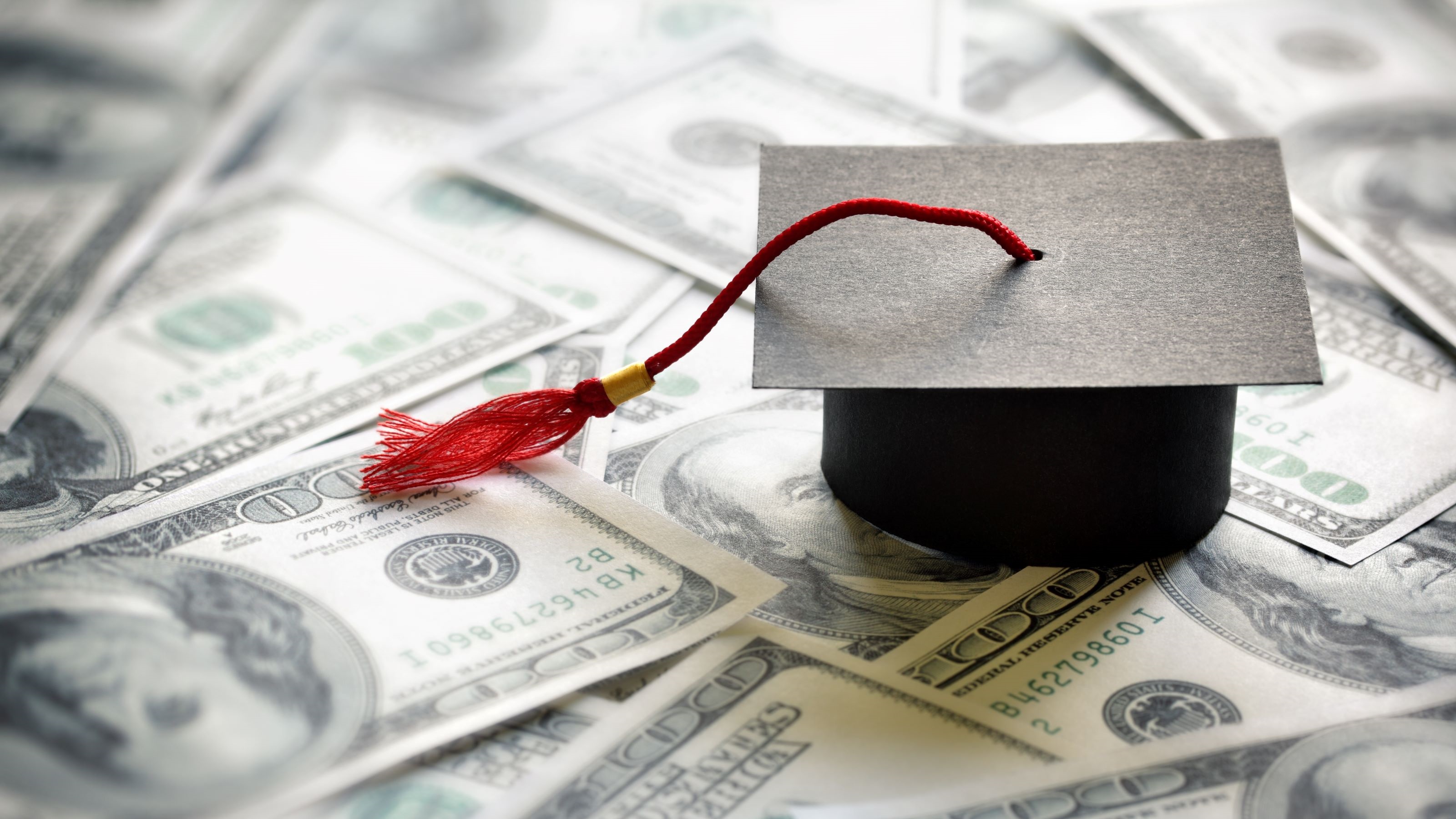New Graduates Navigate a Challenging Labor Market
Things are getting tough for new graduates. Job offers are drying up and the jobless rate is increasing. Are internships the answer?


Profit and prosper with the best of Kiplinger's advice on investing, taxes, retirement, personal finance and much more. Delivered daily. Enter your email in the box and click Sign Me Up.
You are now subscribed
Your newsletter sign-up was successful
Want to add more newsletters?
To help you understand what is going on in the jobs and education sectors, our highly experienced Kiplinger Letter team will keep you abreast of the latest developments and forecasts (Get a free issue of The Kiplinger Letter or subscribe). You'll get all the latest news first by subscribing, but we publish many (but not all) of our forecasts a few days afterward online. Here’s the latest...
With the job market starting to cool off internships will play an even bigger role for college students in finding a job, and for employers that are trying to hire well-qualified candidates. Here are some tips for both hiring managers and job seekers navigating the tricky labor market.
Things are getting tough for new graduates. Job offers are drying up. The jobless rate among recent grads is at the highest level since 2016 — with the exception of the pandemic summer of 2020. Unemployed workers in general are finding it harder to land a new job. The number of job listings is back to its pre-pandemic normal and the amount of time spent by applicants on finding a new job is creeping up.
From just $107.88 $24.99 for Kiplinger Personal Finance
Become a smarter, better informed investor. Subscribe from just $107.88 $24.99, plus get up to 4 Special Issues

Sign up for Kiplinger’s Free Newsletters
Profit and prosper with the best of expert advice on investing, taxes, retirement, personal finance and more - straight to your e-mail.
Profit and prosper with the best of expert advice - straight to your e-mail.
Internships are increasingly key to an offer. Many employers treat them as auditions, in which they get an extended look at a possible hire without a major commitment. In a crowded market, demonstrated, relevant experience via an internship often counts for a lot more than an applicant’s GPA. Firms in finance, consulting and tech in particular are likely to hire from among their prior interns. Even if a graduate doesn’t land a full-time job where they previously interned, a good track record as an intern doing related work can lead to an offer elsewhere. In one survey, 80% of employers cited internship programs as their top recruiting tool.
A sign of how key internships are: 60% of graduating seniors have done one. At the most selective colleges, the figure is more like 90%. A major benefit those schools offer is their deep networks of contacts at leading firms, and the ability to place students with them. The ability to open those doors is a valuable component of the overall experience of attending an Ivy League or other top-echelon university.
Also, note that the nature of internships is evolving. Short-term programs are gaining in popularity. They let students get their feet wet and make an impression on prospective employers, who can cycle through a lot of potential future hires with minimal commitment. Parker Dewey was founded to arrange “micro-internships,” which total less than 40 hours and pay participants $20 to $25 per hour. Another site, virtualinternships.com, sets up online gigs for students looking to work at foreign firms.
For employers considering hiring interns, whether to pay is a major decision. Unpaid programs are OK but should meet certain criteria to not run afoul of labor laws. For starters, there must be a clear benefit to the intern, in the form of gaining skills and experience (and often, academic credit from their university), and it should be clear up front that the work is unpaid. Still, paid internship programs will naturally draw more and better applicants, likely leading to better performance while the program lasts, and a bigger pool of qualified applicants for full-time jobs.
This forecast first appeared in The Kiplinger Letter, which has been running since 1923 and is a collection of concise weekly forecasts on business and economic trends, as well as what to expect from Washington, to help you understand what’s coming up to make the most of your investments and your money. Subscribe to The Kiplinger Letter.
Profit and prosper with the best of Kiplinger's advice on investing, taxes, retirement, personal finance and much more. Delivered daily. Enter your email in the box and click Sign Me Up.

David is both staff economist and reporter for The Kiplinger Letter, overseeing Kiplinger forecasts for the U.S. and world economies. Previously, he was senior principal economist in the Center for Forecasting and Modeling at IHS/GlobalInsight, and an economist in the Chief Economist's Office of the U.S. Department of Commerce. David has co-written weekly reports on economic conditions since 1992, and has forecasted GDP and its components since 1995, beating the Blue Chip Indicators forecasts two-thirds of the time. David is a Certified Business Economist as recognized by the National Association for Business Economics. He has two master's degrees and is ABD in economics from the University of North Carolina at Chapel Hill.
-
 Why Some Michigan Tax Refunds Are Taking Longer Than Usual This Year
Why Some Michigan Tax Refunds Are Taking Longer Than Usual This YearState Taxes If your Michigan tax refund hasn’t arrived, you’re not alone. Here’s what "pending manual review" means and how to verify your identity if needed.
-
 If You'd Put $1,000 Into Caterpillar Stock 20 Years Ago, Here's What You'd Have Today
If You'd Put $1,000 Into Caterpillar Stock 20 Years Ago, Here's What You'd Have TodayCaterpillar stock has been a remarkably resilient market beater for a very long time.
-
 Good Stock Picking Gives This Primecap Odyssey Fund a Lift
Good Stock Picking Gives This Primecap Odyssey Fund a LiftOutsize exposure to an outperforming tech stock and a pair of drugmakers have boosted recent returns for the Primecap Odyssey Growth Fund.
-
 How AI Chatbots Can Secretly Give Biased Advice
How AI Chatbots Can Secretly Give Biased AdviceThe Kiplinger Letter “Poisoned” artificial intelligence can give untrustworthy advice about finance, health and lots more. Here’s how to fend off the growing threat.
-
 Farmers Brace for Another Rough Year
Farmers Brace for Another Rough YearThe Kiplinger Letter The agriculture sector has been plagued by low commodity prices and is facing an uncertain trade outlook.
-
 AI Sparks Existential Crisis for Software Stocks
AI Sparks Existential Crisis for Software StocksThe Kiplinger Letter Fears that SaaS subscription software could be rendered obsolete by artificial intelligence make investors jittery.
-
 Big Change Coming to the Federal Reserve
Big Change Coming to the Federal ReserveThe Lette A new chairman of the Federal Reserve has been named. What will this mean for the economy?
-
 A Scary Emerging AI Threat
A Scary Emerging AI ThreatThe Kiplinger Letter An emerging public health issue caused by artificial intelligence poses a new national security threat. Expect AI-induced psychosis to gain far more attention.
-
 An Inflection Point for the Entertainment Industry
An Inflection Point for the Entertainment IndustryThe Kiplinger Letter The entertainment industry is shifting as movie and TV companies face fierce competition, fight for attention and cope with artificial intelligence.
-
 Humanoid Robots Are About to be Put to the Test
Humanoid Robots Are About to be Put to the TestThe Kiplinger Letter Robot makers are in a full-on sprint to take over factories, warehouses and homes, but lofty visions of rapid adoption are outpacing the technology’s reality.
-
 Trump Reshapes Foreign Policy
Trump Reshapes Foreign PolicyThe Kiplinger Letter The President starts the new year by putting allies and adversaries on notice.